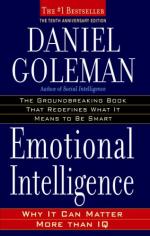
|
| Name: _________________________ | Period: ___________________ |
This quiz consists of 5 multiple choice and 5 short answer questions through Chapter 13.
Multiple Choice Questions
1. What does “DSM” refer to?
(a) Disease Spreading Material.
(b) Depression and Sleep Apnea Medicine.
(c) Diagnostic and Statistical Manual of Mental Disorders.
(d) Damaging Social Manners.
2. The left and right pre-frontal lobes of the brain’s cortex balance the emotional responses of what?
(a) The neocortex.
(b) The hippocampus.
(c) The amygdala.
(d) The olfactory lobe.
3. Dr. Judith Lewis Herman discovered three vital stages for retraining the brain of people suffering from PTSD. What is the second stage discussed in Part Four: Chapter 13, “Trauma and Emotional Relearning”?
(a) Mourning the trauma.
(b) Acting out the trauma in a real world environment.
(c) Understanding the triggers and responses.
(d) Retelling and reconstructing the trauma in a safe environment.
4. Dolf Zillmann gives two methods for diffusing anger. What is the second?
(a) Find someone to council you about the anger.
(b) Challenge the angry thoughts before taking action.
(c) Release the anger in a constructive manner.
(d) Remove yourself from the setting that triggers the anger.
5. Researcher Paul Ekman names three kinds of display rules in Part Two: Chapter 8, “The Social Arts.” What is the second?
(a) Exaggerating.
(b) Minimizing.
(c) Substituting.
(d) Inventing.
Short Answer Questions
1. T. Berry Brazelton found through research that a child's readiness for learning is based on seven key factors. Which is the third?
2. When was Dr. Charles Nemeroff born?
3. According to the author in Part Two: Chapter 6, “The Master Aptitude,” the superior achievement of Asian-Americans comes more from what than from IQ?
4. The neocortex is the "seat of” what, according to the author in Part One: Chapter 1, “What Are Emotions For?”
5. Mihaly Csikszentmihalyi refers to a state of high concentration, self-forgetfulness, and mild ecstasy as being what?
|
This section contains 286 words (approx. 1 page at 300 words per page) |

|




